About Dilworth Center
Nestled in Charlotte, North Carolina’s historic Dilworth neighborhood is the Dilworth Center. The center is a nonprofit and CARF-accredited facility that was founded in 1990. They offer compassionate outpatient care for substance use and co-occurring mental health disorders. Serving adolescents, young adults, adults, families and professionals, the center provides a warm and home-like environment. They accept insurance and offer self pay options. What stood out to me is their 80% sobriety rate one year post treatment.
Treatment for Adults and Adolescents
Their intensive outpatient program (IOP) is tailored for adults, adolescents and young adults. The length of the program will vary between age groups from 16 weeks to 18 weeks. The adolescent program will balance treatment with education.
The flexibility of their outpatient program allows you to maintain your work, school or home routines. Programs include educational lectures, group and individual therapy and 12 Step facilitation. They use therapeutic models such as cognitive behavioral therapy, motivational interviewing and trauma related counseling.
Specialized Programming
I like that their specialized tracks support professionals like nurses and pilots. The program meets regulatory board requirements.
The Family Program offers weekly group sessions, individual meetings and Al-Anon access to educate and heal loved ones. They will conduct a comprehensive assessment to ensure personalized treatment plans with referrals to external resources if needed.
They also offer aftercare and alumni programs. These programs will provide ongoing support through weekly meetings, community activities and relapse prevention strategies.
I like that they also offer mental health services. These services address co-occurring disorders like depression or PTSD. The center collaborates with recovery residences to mimic residential care when necessary.
Addiction Treatment Programs
Alcohol Rehab
The best way to achieve recovery from alcohol use disorder is by completing a high-quality alcohol rehab in North Carolina and applying the tools you learn to stay in sobriety. In an alcohol program you’ll not only receive treatment, but you’ll participate in activities, receive peer support, and learn how to have fun without alcohol.
Opioid Addiction
Facilities that offer substance use treatment in North Carolina can give you the skills and tools you need to break free from opioid addiction. Common services include counseling and classes on coping skills, emotional management, communication, and other key life skills. Opioid rehab programs can provide inpatient or outpatient treatment.
Drug Rehab
If you’re ready to overcome substance use disorder, a drug rehab in North Carolina can give you the tools you need. The rehab program may use multiple approaches, including nutrition, psychology, holistic methods, and support groups. These tools help you build a substance-free lifestyle and move into long-term recovery.
Adult Program
Adult program programs in North Carolina address the specific needs of this stage of life. In an adult program, the activities, peer support, and counseling are tailored to the unique needs of this age group. This may include talking about how to build a career, raise a family, and handle the many responsibilities of independent living.
Senior Rehab
Adults who are older have different needs than younger generations. A senior rehab in North Carolina can give you the tools you need to overcome addiction. In the senior program, the activities, peer support, and counseling are tailored to the unique needs of older clients. This may include pain management education, lower-impact exercise, and outings that are accessible to those with mobility challenges.
Men's Rehab
A men’s rehab in North Carolina can provide every level of care while addressing the unique needs of men. In a men’s program, the activities, peer support, and counseling are tailored to the unique needs of men. This may include talking about career development, fatherhood, communication strategies, and more.
Women's Rehab
Choosing a women’s rehab in North Carolina can be a great way to manage gender-specific issues while also addressing substance use. In a women’s program, the activities, peer support, and counseling are tailored to the unique needs women have. This may include talking about building a career, motherhood, relationship safety, and more.
Young Adult Rehab
A young adult rehab in North Carolina addresses the recovery needs of clients in this life stage and gives them the tools they need to succeed. In a young adult program, the activities, peer support, and counseling are tailored to the unique needs of this age group. This may include talking about how to start a career, have a family, and live independently.
Insurance Coverage
Private insurance
If you’re looking for ways to pay for rehab in North Carolina, consider using private insurance. Insurance plans can pay some or all of the costs of rehab. Each plan has different coverage details, and you’ll pay less if you choose a treatment center in the plan’s network. Contact the insurer to find out more information.
Self-pay options
In North Carolina, one option to pay for substance use treatment is self-pay, also known as private pay. You can use a medical loan, write a check, or send money to the center electronically. Check on the fee structure, which can vary depending on the type of care.
Levels of Care
- 1
Outpatient Rehab
If you struggle with addiction in North Carolina, outpatient care is one option for rehab. You’ll live at home or in sober living outside of sessions. During outpatient treatment, clients have independence outside of sessions, allowing them to work, attend school, and practice their new habits in real-world situations.
- 2
Aftercare Support
Aftercare in North Carolina will help you connect with resources and support from others so you can encourage each other over the long term. A strong aftercare program can include ongoing counseling, education and employment support, housing services, and connections to community resources.
Therapies
Family Therapy
If you struggle with addiction in North Carolina, it’s common to have broken and dysfunctional family relationships. Family therapy can help you address those issues and find support from your loved ones. Family therapy is a common part of both inpatient and outpatient substance use treatment and may be used to help address trauma, build better relationships, and help loved ones become part of your support network.
Group Therapy
If you struggle with addiction in North Carolina, it’s common to feel like no one understands you. Group therapy can help you find common perspectives and support. In rehab, group therapy is only one of the elements of treatment, along with activities, peer support, individual counseling, relapse prevention, and more. Together, all these methods support you in establishing long-term recovery.
Individual Therapy
In North Carolina, individual therapy allows you to work one-on-one with a professional to address your past experiences and substance use triggers. This support and accountability help you establish recovery. Substance use treatment includes detox, inpatient treatment, and outpatient care, and individual therapy may be a part of each of these stages. The goal is to help clients address the roots of addiction, develop motivation to change, and create new habits for a substance-free life.
Accreditations
Location
Contact Dilworth Center
Top Drug Rehab Centers in North Carolina
-
 North Carolina
North CarolinaCrossroads of Greensboro
2706 North Church Street Greensboro, North Carolina 27405
-
 North Carolina
North CarolinaSilver Ridge
183 Old Turnpike Road Mills River, North Carolina 28759
-
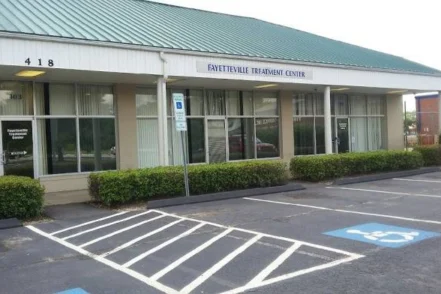 North Carolina
North CarolinaNew Season Fayetteville Treatment Center
Person St, Suite 103 Fayetteville, North Carolina 28301
-
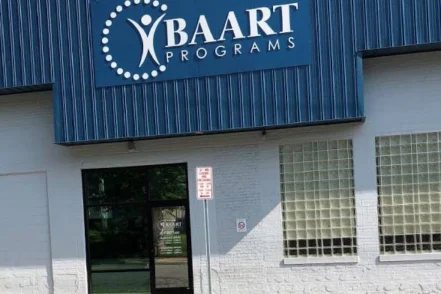 North Carolina
North CarolinaBAART Programs Durham
800 N Mangum Street, Suite 400 Durham, North Carolina 27701
-
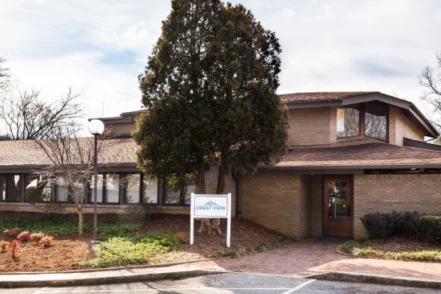 North Carolina
North CarolinaCrest View Recovery Center
90 Asheland Avenue, Suite D Asheville, North Carolina 28801
-
 North Carolina
North CarolinaDilworth Center
2240 Park Road Charlotte, North Carolina 28203
-
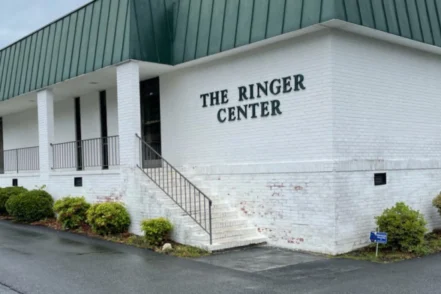 North Carolina
North CarolinaThe Ringer Center Greensboro
213 East Bessemer Avenue Greensboro, North Carolina 27401
-
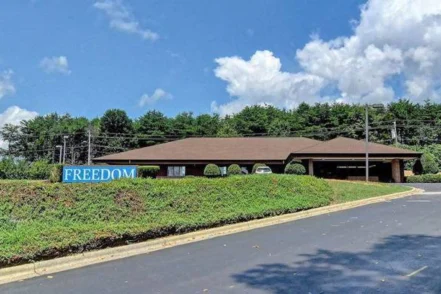 North Carolina
North CarolinaFreedom Detox
1089 X Ray Dr Gastonia, North Carolina 28054
-
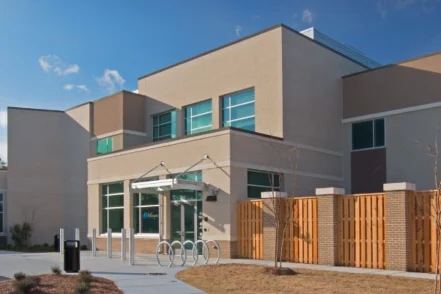 North Carolina
North CarolinaWilmington Treatment Center Troy Drive
2520 Troy Drive Wilmington, North Carolina 28401
-
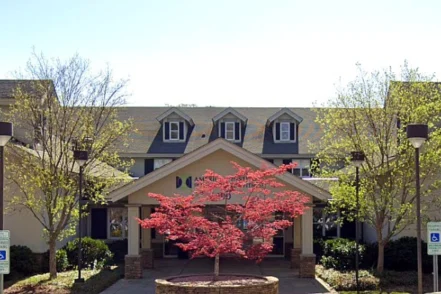 North Carolina
North CarolinaCarolina Performance
8300 Health Park, Suite 201 Raleigh, North Carolina 27615
-
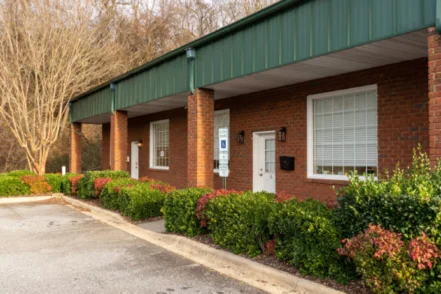 North Carolina
North CarolinaAsheville Recovery Center
9 Old Burnsville Hill Road, Suite 7 Asheville, North Carolina 28804
-
 North Carolina
North CarolinaHolly Hill Hospital
3019 Falstaff Road Raleigh, North Carolina 27610
-
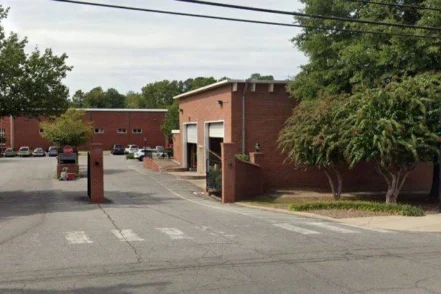 North Carolina
North CarolinaTriangle Residential Options for Substance Abusers
1820 James Street Durham, North Carolina 27707

